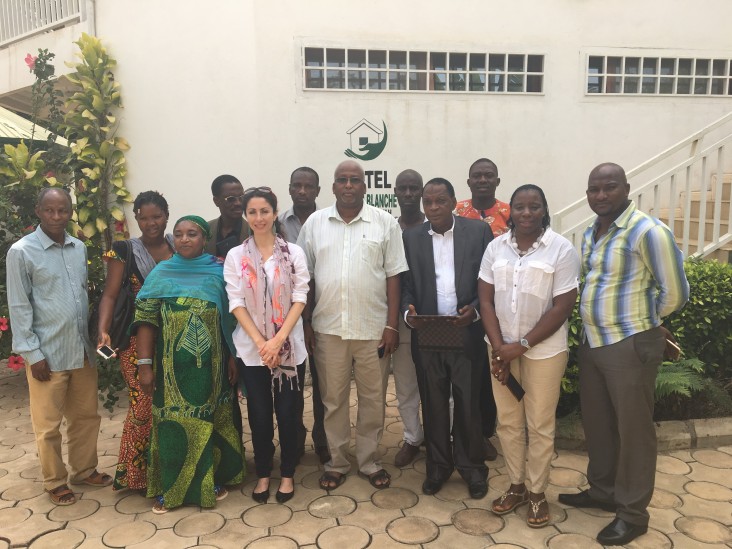Speeches Shim

March 2018 — In 2014, the Ebola virus outbreak claimed over 2,000 lives in Guinea. The rapid spread of the disease across the country was primarily due to the Ministry of Health’s lack of communication preparedness and transparency, which led to the citizenry’s complete mistrust of the public health system. As a consequence, people avoided hospitals and reverted instead to alternative health care through local healers, exacerbating the spread of the disease.
With USAID’s support through the Health, Finance and Governance project, the Ministry of Health developed and began implementing a two-year (2017-2019) communications strategy to reduce the country’s health risk by effectively responding to global health emergencies and bridging the gap between public health authorities and communities. The strategy aims to improve transparency and accountability with the public to enhance trust in the health system and contribute to a crisis-ready department.
To support the reform, the ministry created a strategic communications unit composed of a spokesperson, a media relations attaché, and a regional and district communication officer. It also developed an intranet site for internal communications.
“What we hope to develop with this strategy is a coherent, responsive and proactive communications system that links the MoH [Ministry of Health] to all regions in Guinea and reinforces public trust,” explains Dr. Rafiou Diallo, director of the ministry’s Health Promotion Unit.
This new strategy is having a positive impact. In early February, following rumors of the existence of Lassa fever in Guinea, the ministry avoided a general panic in the country by quickly informing the public through a press release that the rumors were false. Because the ministry had revamped its website, trained communication staff, and created a monthly newsletter and Facebook page, the ministry was able to effectively disseminate accurate information.
The Ministry of Health is working with communities to encourage their participation in preventing epidemics, containing outbreaks, and fostering resilience and recovery. Communities have now expanded their involvement in pandemic planning and response as well as discussions on health policy.
USAID’s Health, Finance and Governance project helps strengthen Guinea’s health system by enhancing the efficiency of institutions and programs and improving the health services they deliver to the population. Using skills and knowledge imparted by the project, members of the National Assembly’s Health Commission in 2017 successfully advocated for a 2.4 percent increase in government funding for the health sector, while the Ministry of Health’s Office of the Inspector General has strengthened its health facility auditing and fraud detection capabilities. Across the globe, the project, which runs from October 2013 through September 2018, has worked with more than 40 countries to fundamentally strengthen health systems and expand access to priority health care services.
LINKS

Comment
Make a general inquiry or suggest an improvement.